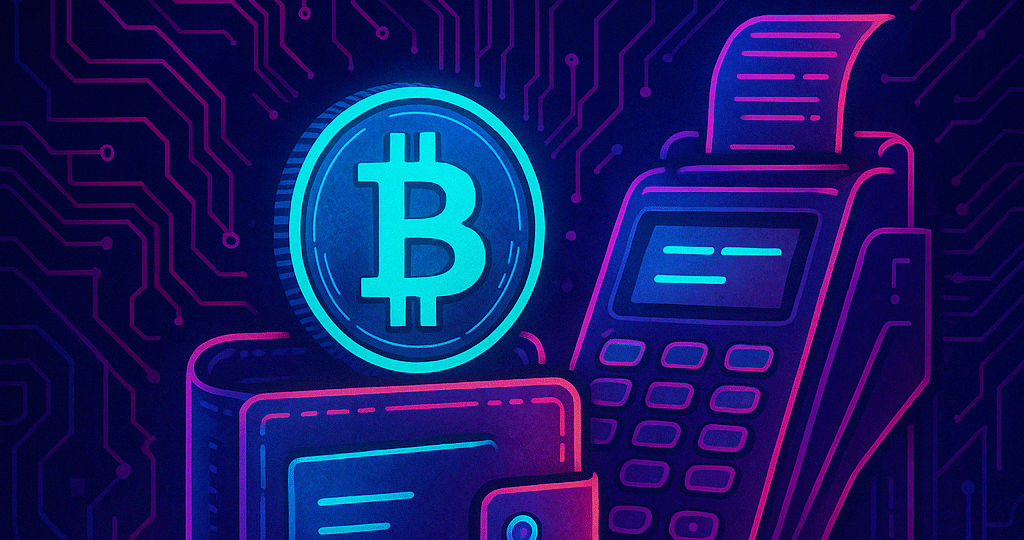The Rise of Crypto Payments: Transforming the Future of Digital Transactions
April 20, 2025 | by 16squaresmaster@gmail.com

Introduction
Over the past decade, the financial landscape has undergone a seismic shift. At the heart of this transformation is cryptocurrency, a decentralized form of digital money that is revolutionizing how people and businesses exchange value. From Bitcoin to Ethereum, these assets have transitioned from speculative investments to practical tools for real-world payments.
As businesses and consumers alike seek faster, cheaper, and more secure transactions, crypto payments are becoming an increasingly viable alternative to traditional payment systems. In this comprehensive guide, we explore the evolution of digital payments, the role of payment gateways, the emergence of crypto acquiring, and how businesses are adapting to offer cryptocurrency support for everyday transactions.
1. What Are Crypto Payments?
Crypto payments refer to transactions that use digital currencies instead of fiat money (like USD, EUR, or GBP). These payments rely on blockchain technology to validate, record, and confirm exchanges in a decentralized ledger, ensuring secure transactions that are virtually tamper-proof.
Some key benefits include:
- Lower fees due to reduced need for intermediaries
- Instant settlement with no delays from banks
- Global reach without conversion fees or exchange rates
Popular cryptocurrencies used for payments include Bitcoin (BTC), Ethereum (ETH), Litecoin (LTC), and USDT (Tether).
2. The Growth of Digital Payments and Blockchain Integration
With the rise of e-commerce and mobile apps, the demand for digital payments has skyrocketed. Consumers now expect frictionless checkout, one-click purchases, and recurring payments without manual input.
Enter blockchain.
Blockchain’s decentralized infrastructure enhances payment processing by eliminating middlemen like banks and credit card networks. This leads to:
- Reduced risk of fraud
- Lower transparent fees
- Faster transaction confirmation times
- Immutable records for all payments
Blockchain isn’t just about speculation anymore — it’s about payment solutions for real businesses.
3. How Crypto Payment Gateways Work
A payment gateway is a system that facilitates the transfer of information between a payment portal (like a website or mobile app) and the blockchain to complete a crypto transaction.
How It Works:
- Customer chooses to pay with crypto
- The crypto wallet sends funds to the merchant’s wallet
- The gateway confirms the transaction and converts crypto to fiat if needed
- The merchant receives confirmation and delivers the product/service
Leading crypto payment gateways include:
- Coinbase Commerce
- BitPay
- NOWPayments
- CoinPayments
- Binance Pay
These platforms support multiple cryptocurrencies and offer tools for recurring payments, instant conversion, and transparent fees.
4. The Role of Crypto Acquiring in Business Payments
Crypto acquiring is a new payment model where merchants accept digital currencies directly from customers, just like they would with Visa or Mastercard.
Instead of relying on traditional acquiring banks, businesses use crypto payment processors to manage and settle crypto payments.
Advantages for Merchants:
- Faster settlements (often within minutes)
- Lower transaction fees (no chargebacks or third-party cuts)
- Wider global reach, including unbanked customers
- Full cryptocurrency support (BTC, ETH, USDC, and more)
Crypto acquiring is especially beneficial for high-risk industries, international markets, and digital service providers.
5. Ensuring Secure Transactions with Blockchain Technology
Security is one of the biggest concerns in online commerce. Blockchain offers a robust solution for creating secure transactions that are verified through a decentralized consensus mechanism.
Key Security Features:
- Cryptographic encryption: Ensures data cannot be altered once written to the blockchain
- No central point of failure: Prevents DDoS attacks and fraud
- Public verification: All parties can audit transactions if needed
For both customers and merchants, secure transactions mean greater trust and lower risk.
6. Crypto Wallets: The Bridge Between Users and Blockchain
A crypto wallet is a digital tool that stores and manages a user’s cryptocurrency holdings. Without a wallet, crypto payments are impossible.
There are several types of wallets:
- Hot Wallets: Internet-connected, ideal for daily use (e.g., MetaMask, Trust Wallet)
- Cold Wallets: Offline storage for long-term security (e.g., Ledger, Trezor)
- Custodial Wallets: Managed by a third-party provider (e.g., exchange-based wallets)
Most payment gateways integrate directly with both custodial and non-custodial wallets, allowing seamless payment processing.
7. Recurring Payments and Subscription Models
As SaaS and subscription services dominate the digital space, the need for recurring payments in crypto has emerged. Unlike traditional auto-debit, crypto transactions require smart contracts or off-chain agreements.
How Recurring Payments Work in Crypto:
- Smart contracts automate scheduled transfers
- Customer pre-approves a wallet to be charged
- Funds are drawn at intervals without manual input
Platforms like Revuto and Loopify are pioneering this space, making it easier to manage crypto subscriptions with minimal user friction.
8. Transparency and Fees in Crypto Payments
One of the biggest selling points of blockchain is transparency. Every crypto payment is recorded on a public ledger, viewable by anyone.
Unlike traditional payments where fees are often hidden or unpredictable, blockchain offers:
- Transparent fees
- Predictable gas costs (though volatile)
- No hidden charges or third-party surcharges
This transparency benefits both users and merchants by providing a trustworthy and auditable payment trail.
9. Real-World Use Cases and Merchant Adoption
More companies are accepting crypto payments across various industries:
E-commerce:
- Shopify stores can integrate with crypto payment gateways like BitPay
- WooCommerce and Magento plugins simplify checkout with digital assets
Travel and Hospitality:
- Platforms like Travala.com and CheapAir accept crypto for flight and hotel bookings
Gaming and Digital Content:
- Game studios and streaming platforms use tokens and payment solutions to monetize content
Charity and Donations:
- NGOs like Save the Children and Red Cross accept cryptocurrency donations with full cryptocurrency support
Adoption is still in its early stages, but it’s growing quickly.
10. Regulatory Environment and Compliance
Governments worldwide are introducing regulations to govern crypto payments and prevent money laundering.
KYC and AML Requirements:
- Most payment gateways require businesses to verify customer identity
- Crypto acquiring partners often conduct due diligence on merchants
Staying compliant is essential for maintaining trust and avoiding legal risks.
11. The Future of Crypto Payments
As blockchain matures and layer-2 solutions like Arbitrum, Optimism, and Polygon reduce gas fees, crypto payments will become even more scalable and accessible.
Future developments may include:
- Biometric wallet access for enhanced security
- Interoperable wallets that support hundreds of chains
- AI-powered payment processing for fraud detection and optimization
- Advanced tools for recurring payments via smart contracts
Major financial institutions are also entering the space, with Visa, Mastercard, and PayPal exploring deeper crypto integrations.
Conclusion
The world of crypto payments is evolving at breakneck speed. What was once a niche experiment is now becoming a mainstream payment solution with global applications. For merchants, embracing crypto offers lower fees, faster settlement, and a new wave of digitally-savvy customers. For consumers, it means greater privacy, control, and accessibility.
Whether you’re a business owner exploring crypto acquiring, a developer building smart contracts for recurring payments, or a consumer looking for secure transactions and transparent fees, the future of digital payments lies in cryptocurrency.
As this ecosystem grows, the tools and platforms surrounding crypto wallets, payment gateways, and cryptocurrency support will become more intuitive, efficient, and indispensable.
RELATED POSTS
View all


